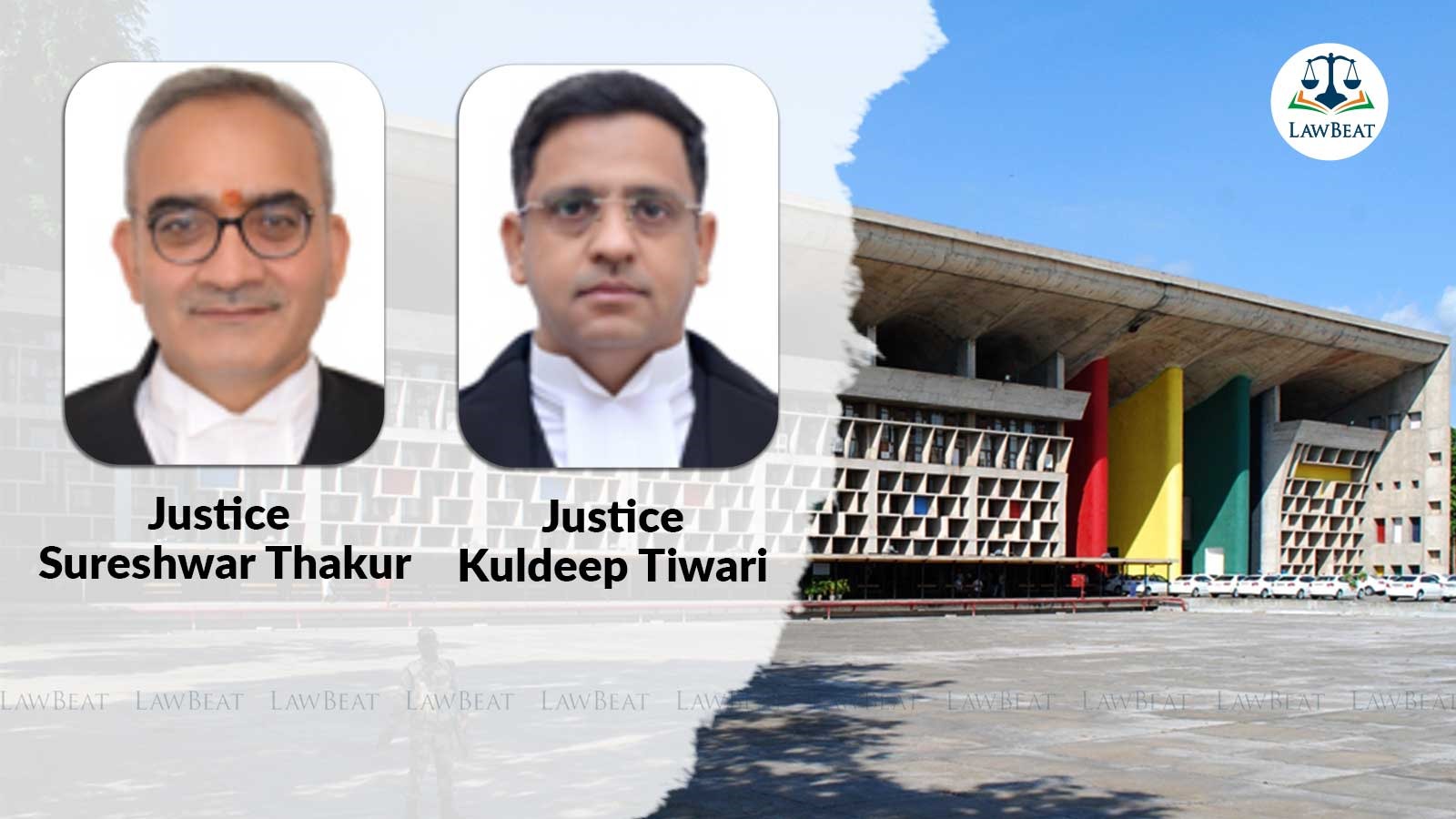No statutory necessity under National Highways Act, 1956 to draw settlement or rehabilitation scheme: P&H HC

No assessment was undertaken by the requisite authorities for fixing compensation and there was no compliance with Sections 4 to 8 of the Right to Fair Compensation and Transparency in Land Acquisition, Rehabilitation and Resettlement Act, 2013, the petitioner contended
The Punjab and Haryana High Court recently held that the Right to Fair Compensation and Transparency in Land Acquisition, Rehabilitation and Resettlement (RFCTLARR) Act, 2013 does not apply ipso facto to the acquisitions made under the National Highways Act, 1956, and that not adhering the provisions for Social Impact Assessment does not vitiate the process carried under the latter Act.
The court also dealt with requirements for seeking benefits of rehabilitation, and resettlement as provided under the 2013 Act and provisions of the Specific Relief Act, 1963 that bars stay on infrastructure projects.
A division bench of Justice Sureshwar Thakur and Justice Kuldeep Tiwari, while disposing of the petition at hand, clarified that in order to avail the benefits of the schedule appended to the RFCTLARR Act, 2013, one must show by means of sufficient evidences that he is an “affected family”;
“Though, the petitioner claims the benefits of the above Schedule, but he has not been able to plead nor prove, that as a result of acquisition, he has lost his house, nor he has been able to prove, that as a sequel of acquisition of his entire land, whereon, he was dependent for his livelihood, thereby he becomes an affected family. Therefore, nor thereby a dire statutory necessity, as became cast, upon the respondent concerned, to prepare or draw resettlement or rehabilitation scheme, nor thus became intentionally abandoned. Resultantly, the petitioner cannot entail, upon, the NHAI, that for non-preparing of any resettlement or rehabilitation scheme qua thereby, the entire launched acquisition proceedings are vitiated”, court said.
The brief findings of the court, on each of the contentions raised, run hereunder:
- Non-preparation of Social Impact Assessment report as mandated by the RFCTLARR, 2013, does not vitiate the acquisition process under Highways Act, 1956. “Statutory provisions, as embodied in the Act of 2013 are not ipso facto made applicable to the Act of 1956”, Court said. Reliance was further placed on the case of M/s Sharman Spinning Mills v. Union of India, CWP No. 10537 of 2021.
- Petitioner had an alternate remedy under Section 3G(5) of the Act of 1956 for seeking any enhancement of compensation.
- Invalid possession assumed by NHAI, not a persuading submission, as possession over the acquired lands becomes fully protected by evident compliances of Section 3(G) and Section 3(H) of the Act of 1956.
- Petitioner has failed to prove that due to the said acquisition, he has been displaced or lost livelihood, as such benefits of schedule to the 2013 Act cannot be extended.
- Restraining the respondents from carrying out infrastructure project cannot be permitted in view of Section 20-A, Specific Relief Act, 1963.
Brief Background
On 25.11.2020, a notification under Section 3-A, National Highways Act, 1956 was issued for acquiring the land for National Highway No. 205K, Ludhiana-Rupnagar Section.
On 15.04.2021, a “declaration of acquisition” was made under Section 3-D of the Act of 1956.
Objections were filed by the petitioner, which was dismissed vide order dated 09.09.2021.
On 27.09.2021, an award was passed with respect to the acquired lands which was challenged by NHAI under Section 3G(5) of the Act, before Arbitrator-cum-Divisional Commissioner, Patiala and has been pending so far.
Counsel for the petitioner contended that no assessment was undertaken by the requisite authorities for fixing compensation and that there was no compliance with Sections 4 to 8 (Social Impact Assessment) of the Right to Fair Compensation and Transparency in Land Acquisition, Rehabilitation and Resettlement Act, 2013, vitiating the sanctity of the award so passed. The objections and the claim filed under Section 3C(1) and 3G(3) of the Act, 1956 were also not considered adequately by the concerned authority nor any resettlement or rehabilitation was provided, the petitioner added.
On the contrary, counsel for the respondents submitted that at the time of launching the acquisition proceedings, the petitioner's land was vacant and there was no boundary wall existing over the disputed khasra numbers, especially when the notification under Section 3-A of the Act of 1956 was made. Additionally, as per the decision in M/s Sharman Spinning Mills v. Union of India, CWP No. 10537 of 2021, no Social Impact Assessment in the present case was required. As for the argument that no resettlement or rehabilitation was provided, it was submitted that the petitioners failed to prove that they were actually dependent on the acquired land for living or livelihood.
Section 20A, Specific Relief Act, 1963 was further invoked challenging the relief sought by the Petitioner.
Counsel for the petitioner: Mr. Charanpal S, Bagri, Advocate and Dr. Gurjit Kaur Bagri
Counsel for the respondents: Mr. Satya Pal Jain, Addl. Solicitor General of India with Mr. Ashish Rawal, Mr. R.S. Madan, Advocate for respondents No. 3 and 4, Mr. Maninder Singh, DAG, Punjab, Mr. Gaurav Deep Goyal, Mr. K.S.Kang, Advocate for the respondent-NHAI.
Case Title: Ashok Kumar Garg v. Union of India | CWP No. 28804 of 2022
